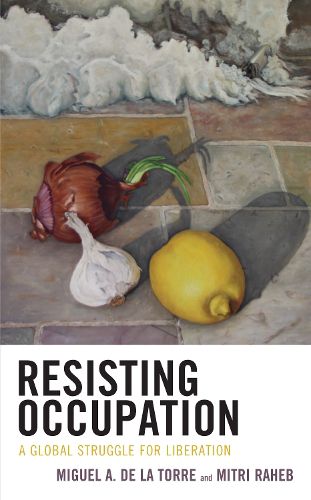Readings Newsletter
Become a Readings Member to make your shopping experience even easier.
Sign in or sign up for free!
You’re not far away from qualifying for FREE standard shipping within Australia
You’ve qualified for FREE standard shipping within Australia
The cart is loading…






In Resisting Occupation, international scholars discuss the radical denial of human flourishing caused by the occupation of mind, body, spirit, and land. They explore how religious perspectives can be, and often are, constructed by occupiers to justify their actions, perpetuate exploitation, and domesticate indigenous landholders. In the name of Christianization and civilization, which has proven to be a global phenomenon beyond time and space, a consistent domestication process is established. The colonized are taught to want, to yearn for, and to embrace their occupation, seeing themselves through the eyes of their colonizers. Writing from different spots around the globe, the scholars of this book demonstrate how occupation, a synonym for empire, is manifested within their social context and reveal unity in their struggle for liberation. Recognizing that where there is oppression, there is resistance, the contributors turn to religion. While questioning the logic, rationale, theology, and epistemology of the empire’s religion, they nonetheless seek the liberative response of resistance - at times using the very religion of the occupiers.
$9.00 standard shipping within Australia
FREE standard shipping within Australia for orders over $100.00
Express & International shipping calculated at checkout
In Resisting Occupation, international scholars discuss the radical denial of human flourishing caused by the occupation of mind, body, spirit, and land. They explore how religious perspectives can be, and often are, constructed by occupiers to justify their actions, perpetuate exploitation, and domesticate indigenous landholders. In the name of Christianization and civilization, which has proven to be a global phenomenon beyond time and space, a consistent domestication process is established. The colonized are taught to want, to yearn for, and to embrace their occupation, seeing themselves through the eyes of their colonizers. Writing from different spots around the globe, the scholars of this book demonstrate how occupation, a synonym for empire, is manifested within their social context and reveal unity in their struggle for liberation. Recognizing that where there is oppression, there is resistance, the contributors turn to religion. While questioning the logic, rationale, theology, and epistemology of the empire’s religion, they nonetheless seek the liberative response of resistance - at times using the very religion of the occupiers.